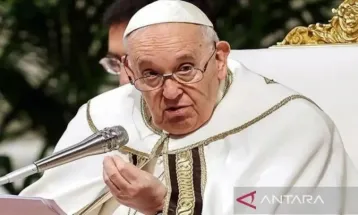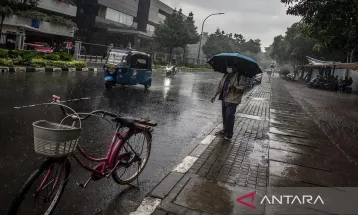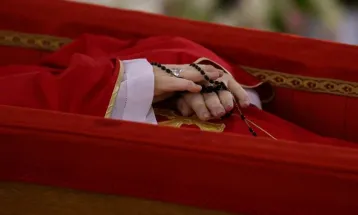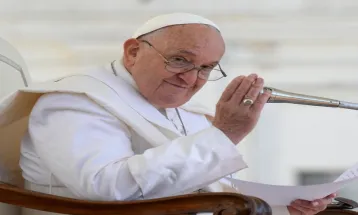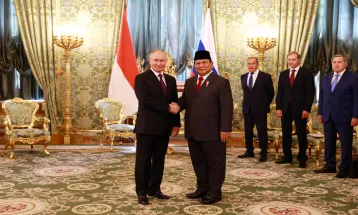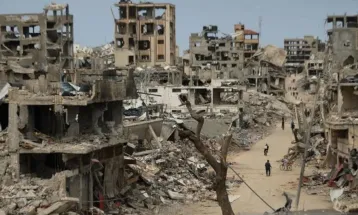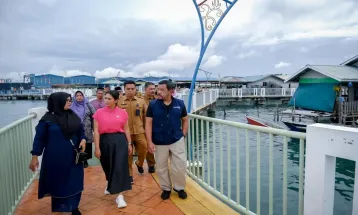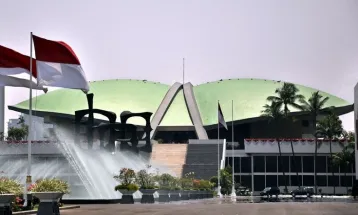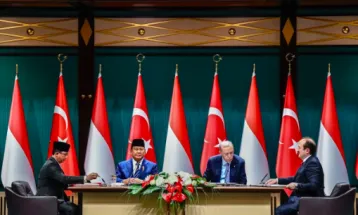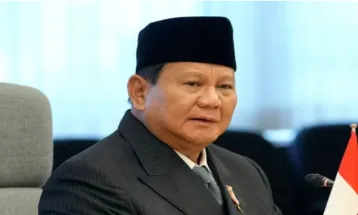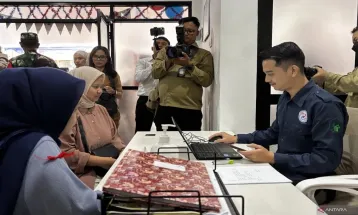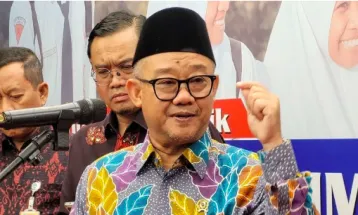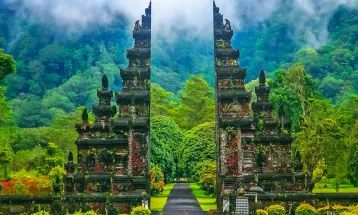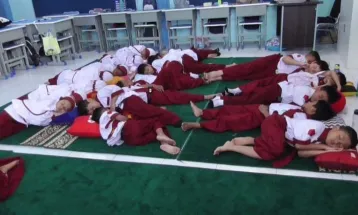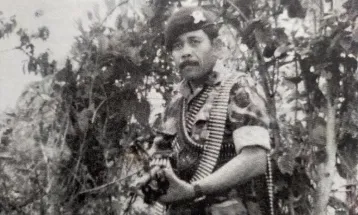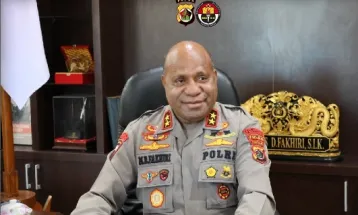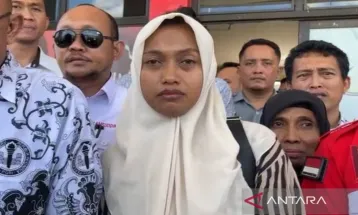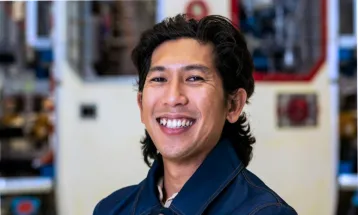Elections and Dangdut: The Sweet Sound of Political Strategy
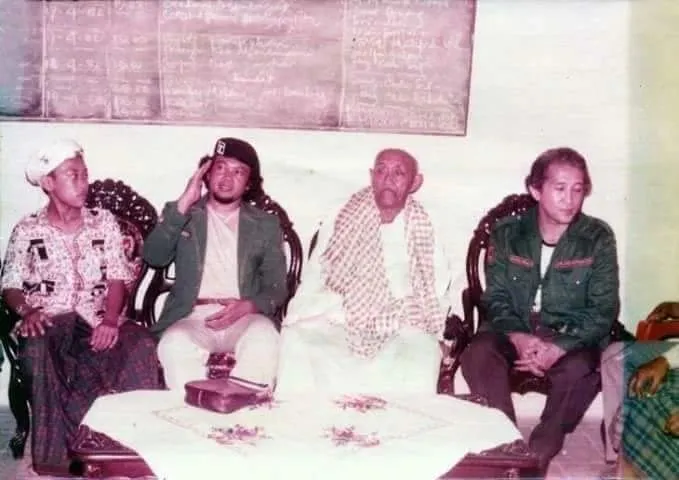
Indonesia’s electoral contests have long been infused with entertainment as a strategy to win voters' hearts. Among these, the most popular in recent decades is dangdut, a music genre deeply rooted in Malay orchestral traditions and beloved across social classes, particularly among the working class. But why has dangdut become synonymous with elections?
Entertainment-driven political campaigns are not a novel concept in Indonesia. The use of cultural and entertainment elements to attract voters dates back to the nation’s first general election in 1955. At the time, entertainment options were scarce, especially in rural areas, prompting political parties to incorporate local performances to draw crowds.
Early Campaigns: A Blend of Culture and Politics
Political parties such as the Indonesian National Party (PNI), Masyumi, Nahdlatul Ulama (NU), and even the Indonesian Communist Party (PKI) leveraged traditional arts to engage with communities. The PKI, for instance, established the People’s Cultural Institute (Lembaga Kebudayaan Rakyat or Lekra) to cultivate traditional arts and expand its influence. As historians Marwati Djoened Poesponegoro and colleagues noted in Sejarah Nasional Indonesia Volume 6 (1984), “Through various attractions like ketoprak, wayang kulit, ludruk, and reog Ponorogo, PKI used culture as a political tool, penetrating rural areas effectively.”
Modern Music as a Campaign Medium
The transition from traditional to modern entertainment in political campaigns gained momentum during the New Order era. By the 1971 elections, parties like Golkar began incorporating popular music genres such as pop, twist, and rock and roll into their strategies. Golkar even assembled a group of renowned Indonesian artists, forming the Artis Safari Golkar ensemble.
Sri Pudyastuti R. and Dwi S. Irawanto, writing in Tempo’s January 2, 1993, article “Dangdut, Bisnis, dan Politik,” explained the group’s significance: “The goal was to gather artists willing to tour and campaign in the regions. This group played a pivotal role in Golkar’s victories and became a staple in every campaign.” In return, artists received exposure on state television’s Aneka Ria Safari.
The integration of celebrities with the ruling regime created a powerful campaign tool that Golkar used to secure repeated electoral triumphs. The presence of household names in entertainment became an irreplaceable asset in rallying voter support.
Dangdut: The Game-Changer
The emergence of dangdut in the 1970s revolutionized Indonesia’s political campaign landscape. Spearheaded by Rhoma Irama, who blended Malay orchestral sounds with rock influences, dangdut quickly gained nationwide popularity, becoming a symbol of the people.
Rhoma’s songs often carried Islamic values and moral lessons, making him a natural fit for the United Development Party (PPP), an Islamic-oriented political party. In the 1978 elections, he served as a campaign ambassador, marking the first time dangdut was central to a political campaign.
By the 1982 elections, dangdut had cemented its role as a powerful voter mobilization tool. As Moh. Shofan observed in Rhoma Irama: Politik Dakwah dalam Nada (2014), “The 1982 elections placed PPP in second with 10.8 million votes, thanks largely to Rhoma’s performances. His ability to draw crowds made him the most effective mass mobilizer in Indonesian political history.”
Dangdut’s Lasting Legacy
The success of dangdut in political campaigns has endured, solidifying its status as a mainstay in electoral strategies. Political parties continue to recruit famous dangdut singers to perform at rallies, ensuring high attendance and enthusiasm. The genre’s ability to connect with grassroots audiences has made it indispensable in Indonesian politics, a legacy that persists to this day.
Without dangdut, political campaigns might feel lackluster. Its enduring appeal as a voter magnet reflects a unique synergy between music and politics in Indonesia.
Writer: Fariz Ahmad Luthfi
Artikel Rekomendasi
Kabar Indonesia
Prabowo Terbitkan Aturan Baru, Korban PHK Dapat Tunjangan 60% Gaj...
Presiden Prabowo Subianto resmi menerbitkan Peraturan Pemerintah (PP) Nomor 6 Tahun 2025 yang mengubah aturan sebelumnya tentang Program Jaminan Kehilangan Pekerjaan (JKP). Dalam aturan baru ini, pekerja yang mengalami P...
Prabowo Putuskan Pemeriksaan Kesehatan Gratis Berjalan Mulai 10 F...
Presiden Prabowo Subianto putuskan program Pemeriksaan Kesehatan Gratis (PKG) resmi berjalan secara nasional pada 10 Februari 2025.
Kemendikdasmen Libatkan Sekolah Swasta dalam SPMB
Kemendikdasmen turut melibatkan sekolah swasta dalam Sistem Penerimaan Murid Baru (SPMB) yang akan menggantikan sistem PPDB pada 2025.
Menteri Pariwisata Tegaskan Komitmen Wujudkan Pariwisata Aman
Menteri Pariwisata Widiyanti Putri Wardhana menegaskan bahwa ingin komitmen pemerintah untuk mewujudkan pariwisata yang aman dan nyaman.
Berita Terpopuler
Sekolah Dasar Muhammadiyah di Sidoarjo Menerapkan Waktu Tidur Sia...
SD Muhammadiyah 4 Zamzam di Sidoarjo, Jawa Timur, menjadikan tidur siang sebagai salah satu pelajaran yang wajib diikuti siswa.
Peltu (Purn) Tatang Koswara Penembak Jitu Indonesia yang Diakui...
Tatang Koswara, lahir di Cibaduyut pada 12 Desember 1946 adalah salah satu penembak jitu (sniper) Indonesia yang diakui dunia.
Kronologi Kasus Guru Honorer Ibu Supriyani yang Viral, Kini Ditan...
Kasus guru honorer ibu Supriyani yang dituding melakukan pemukulan pada siswanya, kini ditangguhkan penahanannya.
Trending Topik
Berita Terkini
Trump dan Sejumlah Pemimpin Dunia Akan Hadiri Pemakaman Paus Fran...
Presiden Amerika Serikat Donald Trump dan para pemimpin dari sejumlah negara akan menghadiri pemakaman Paus Fransiskus di Vatikan pada Sabtu (26/4/2025).
Presiden Prabowo Utus Jokowi hingga Thomas Djiwandono Hadiri Pema...
Presiden Prabowo Subianto mengutus empat utusan untuk menghadiri acara pemakaman Paus Fransiskus di Vatikan, Roma, Sabtu (26/4).
Gunung Semeru Erupsi Rabu Pagi, Tinggi Letusan Capai 900 Meter
Gunung Semeru kembali erupsi dengan letusan setinggi 900 meter di atas puncak pada Rabu (23/4) pagi.
Gunung Lewotobi Laki-laki Erupsi 3 Kali pada Senin Malam
Gunung Lewotobi Laki-laki mengalami erupsi sebanyak tiga kali pada Senin (21/4/2025) dengan periode pengamatan pukul 18:00 hingga 24:00 WITA.



